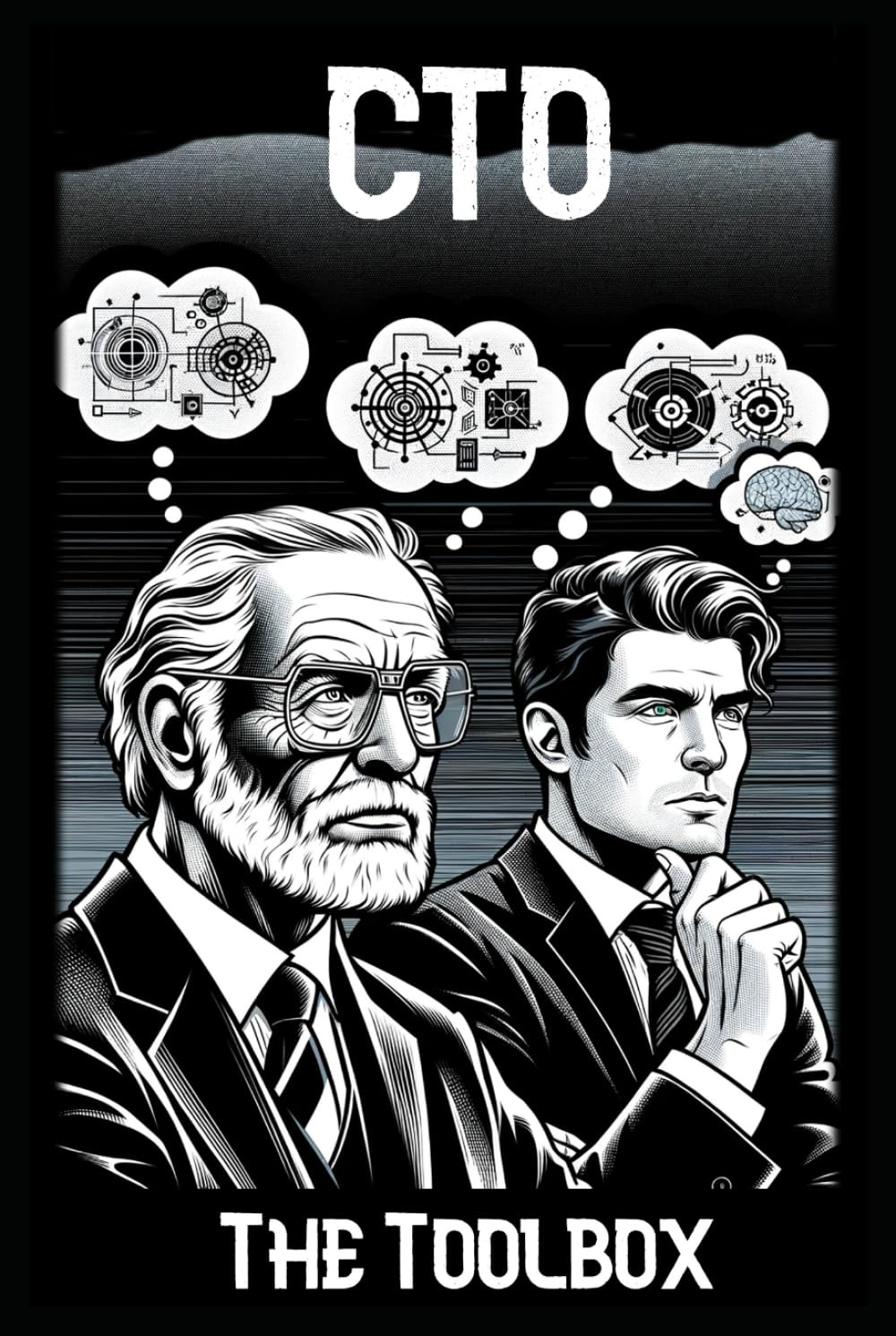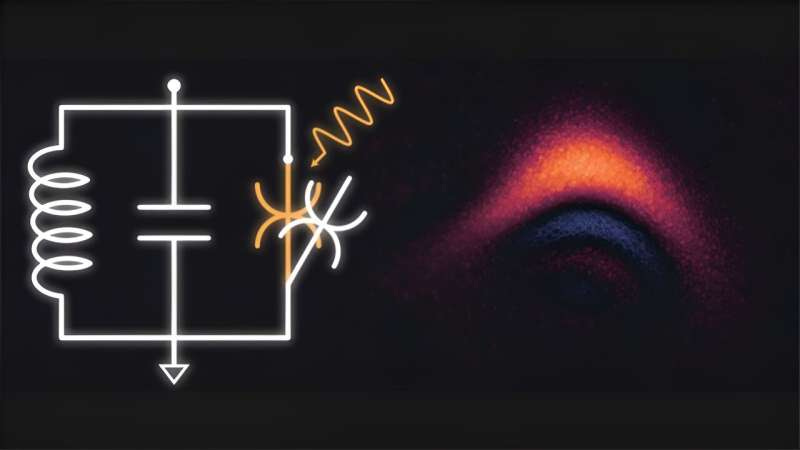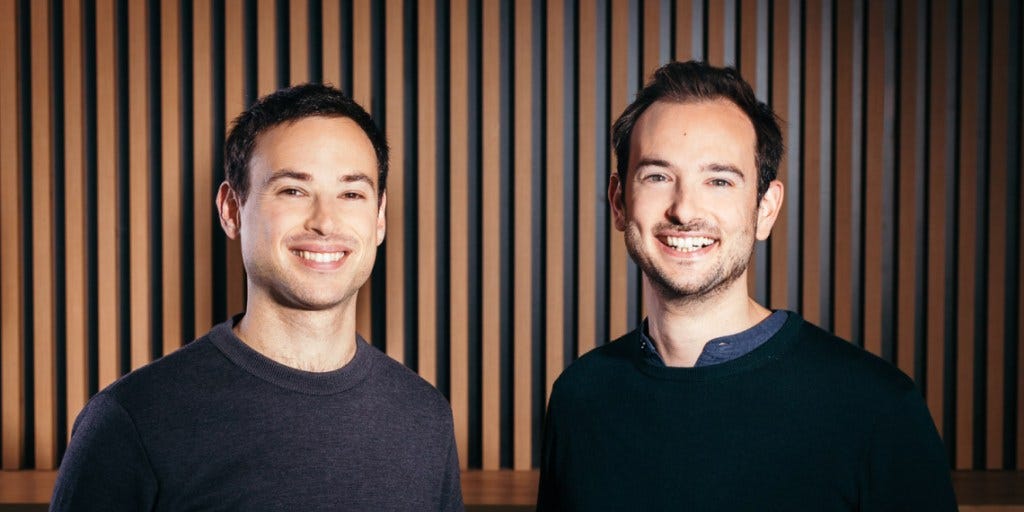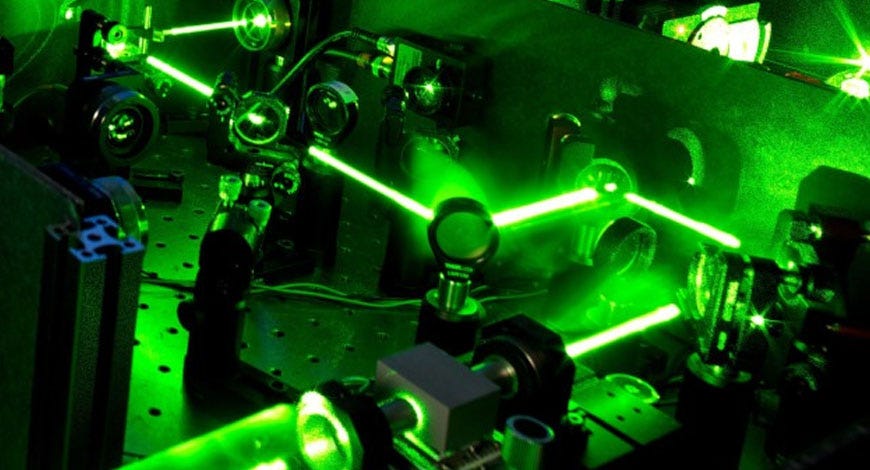The Week in Quantum Computing - June 25th 2024 - QBlox, C12, Quantum Machines, D-Wave, Microsoft and resource estimation
Issue #191
The Week in Quantum Computing. Brought to you by Sergio Gago (@piratecto).
Quick Recap
Investment rounds week! Quantum Machines has announced the opening of the Israeli Quantum Computing Center (IQCC) at Tel Aviv University. Qblox has secured $26M in a Series A funding round. Wave Photonics M4.6 GBP and C12 €18M. Not bad for almost hitting the equator of the year. Meanwhile, the debate on annealing vs optimized and error-mitigated gate based algorithm continues. D-Wave, that had its annual conference this year, deploys its second QC at Davidson Technologies Inc.'s new global headquarters. Also, their commissioned report by Hyperion Research reveals that businesses investing in quantum computing expect substantial ROI, with an estimated $51.5 billion in benefits. Now, they have asked 300 companies, many of them with already active quantum programs. If you asked any random company in the Fortune 500 the answer would be a bit gloomier. Meanwhile, Microsoft adds more “copilot” features and focuses on chemistry together with Unilevel. Azure’s quantum marketplace has been flying “under the radar” for some time, but it seems they are doubling down on this strategy introducing two new capabilities, Generative Chemistry and Accelerated DFT. Lastly, a few very relevant papers have been published this week, including a Quantum Random Forest implementation by the JPMorgan team.
Featured
Quantum needs Software Engineering. And software needs CTOs. And CTOs don’t grow on trees. That is why I wrote this book: The CTO Toolbox. A collection of tools and resources for technology leadership. Your guide to become a Chief Technology Officer (In Quantum, AI or classical software). Buy it now here.
All proceeds from the book are donated to the NGOs Teaming.net and MigraCode Barcelona.
The Week in Quantum Computing
Paper: Development of optimization method for truss structure by quantum annealing
In this study, we developed a new method of topology optimization for truss structures by quantum annealing. To perform quantum annealing analysis with real variables, representation of real numbers as a sum of random number combinations is employed.
Link: https://ift.tt/nT5dcAC
Quantum Annealing vs Gate Based Quantum Computing, Round 2.
A recent research article by Q-CTRL, a quantum computing company, claims that IBM's super-conducting gate-based quantum computer outperforms quantum annealing devices, such as those from D-Wave. The team, including Q-CTRL founder Michael J. Biercuk, states that their quantum solver increases the likelihood of finding minimum energy by up to 1,500 times compared to using a D-Wave annealer. This is the first time a gate-model quantum computer has outperformed an annealer for binary optimization problems. However, Trevor Lanting, D-Wave’s chief development officer, refuted these claims, arguing that Q-CTRL's research falls into problems solvable by classical algorithms and doesn't demonstrate a true quantum advantage. The debate highlights the ongoing competition and innovation in the quantum computing field.
https://quantumzeitgeist.com/quantum-annealing-vs-gate-based-quantum-computing-round-2/
D-Wave to Deploy Second US-Based Advantage Quantum Computer at New Davidson Technologies Global Headquarters
Quantum computing leader D-Wave Quantum Inc. is set to deploy its second US-based Advantage quantum computer at the new global headquarters of Davidson Technologies Inc. in Huntsville, AL. Initially, the system will be accessible to all D-Wave customers in select countries via the Leap™ real-time quantum cloud service. Once a secure facility is established, the system may be exclusively used for sensitive application development. Dr. Alan Baratz, CEO of D-Wave, and Dale Moore, President of Davidson Technologies, highlighted the move's potential to address critical national defense challenges.
Paper: Integration of through-sapphire substrate machining with superconducting quantum processors
A team of researchers, including Narendra Acharya and Robert Armstrong, have developed a sapphire machining process compatible with intermediate-scale quantum processors. The process enables through-substrate electrical connections and signal-routing, crucial for scaling quantum computers in qubit number and dimension. Sapphire, due to its low-loss dielectric properties, supports high-coherence qubits, key for fault-tolerant quantum computers. Recent advances have shown qubit lifetimes exceeding 0.3 ms using tantalum and titanium-nitride deposited on a sapphire substrate. This new technique allows the benefits of sapphire to be utilized and facilitates the use of sapphire-compatible materials for large-scale Quantum
https://arxiv.org/abs/2406.09930v1
Introducing two powerful new capabilities in Azure Quantum Elements: Generative Chemistry and Accelerated DFT
Microsoft's Azure Quantum Elements has introduced two new capabilities, Generative Chemistry and Accelerated DFT. These tools aim to increase the productivity of scientific research and make complex tasks more accessible. The Generative Chemistry tool uses AI to help scientists quickly discover and design new compounds with desired properties. Accelerated DFT, on the other hand, is used for screening candidates for electronic properties. These tools, which use Copilot for Azure Quantum, a natural-language interface, are expected to facilitate breakthroughs in sustainable batteries and pharmaceutical innovations
Quantum Resource Estimation: Paving the Way for Fusion Energy and Beyond
Paper: https://www.pnas.org/doi/abs/10.1073/pnas.2317772121?doi=10.1073%2Fpnas.2317772121&linkId=10124574
Have you ever wondered how scientists estimate the resources needed to run complex quantum algorithms on future quantum computers? In this video, we delve into the fascinating world of quantum resource estimation and its crucial role in realizing the potential of quantum computing. Join us as we explore: The Significance of Quantum Resource Estimation: Discover why accurately estimating quantum resources is essential for understanding the overhead of error correction and ensuring that quantum hardware can handle the applications we envision. Fusion Energy: A Perfect Use Case: Learn how quantum resource estimation is being applied to inertial confinement fusion, a promising avenue for clean energy generation. We'll discuss how quantum algorithms can enhance simulations and contribute to a sustainable future. The Estimation Process: Get a behind-the-scenes look at how researchers compile quantum simulations, make tradeoffs in algorithm development, and compare quantum operations with classical supercomputer operations. The Road Ahead: Explore the exciting future of quantum resource estimation, including the development of a language to automate the process and open up research to a wider community.
Quantum Means Business: New Study Finds Organizations Expect Up to 20x ROI from Quantum Optimization Investments
D-Wave has announced results of a study revealing that businesses using quantum computing expect substantial returns on their investments in quantum optimization. The study, conducted by Hyperion Research, surveyed over 300 enterprise decision makers in the US and select European Union countries. It found that 290 respondents expect to commit $3 to $6 million annually towards quantum optimization, anticipating benefits of $60 to $65 million each. This represents a 10 to 20 times ROI, equating to an estimated $51.5 billion. Furthermore, 21% of respondents plan to use quantum technology in production within the next 12 to 18 months, a 50% increase over the past two years.
https://finance.yahoo.com/news/quantum-means-business-study-finds-110000555.html
Quantum Machines launches Israeli Quantum Computing Center
Quantum Machines has announced the opening of the Israeli Quantum Computing Center (IQCC) at Tel Aviv University, a first-of-its-kind facility integrating quantum and classical computing resources. The IQCC houses multiple quantum computers with different qubit modalities, all using Quantum Machines’ OPX series control stack. The center, established with a budget of NIS 100 million ($27 million) for three years, was chosen by the Israel Innovation Authority. Quantum Machines' CEO Itamar Sivan emphasized the center's open architecture approach for continuous upgrades and scalability. The IQCC will also feature DGX Quantum, a system co-developed with NVIDIA, marking a significant stride in quantum computing research accessibility.
https://www.calcalistech.com/ctechnews/article/sjhwhzasr
Quantum computing trade-off problem addressed by new system
Researchers at Chalmers University of Technology have developed a system that addresses the trade-off problem in quantum computing. The system enables complex operations on a multi-state quantum system at high speed, according to Simone Gasparinetti, leader of the 202Q-lab. The system is based on continuous-variable quantum computing and uses harmonic oscillators to encode information linearly. This method improves error correction and noise resistance, but traditionally struggles with complex operations. The team managed to circumvent this limitation by embedding a control system device within the oscillator. This innovation, published in Nature Communications, could lead to more robust and efficient quantum computers.
https://phys.org/news/2024-06-quantum-problem.html
The First Advanced Quantum Processing Unit Delivered by Pasqal to GENCI and CEA
Pasqal, a leading neutral atom quantum computing firm, has delivered its first 100+ qubit quantum processing unit (QPU) to GENCI (Grand Équipement National de Calcul Intensif) and CEA computing centre. The QPU will be integrated with GENCI's supercomputer, Joliot-Curie, marking a significant advancement in hybrid computing capabilities in Europe. This milestone is part of the High-Performance Computer and Quantum Simulator hybrid (HPCQS) project, co-funded by the European HPC Joint Undertaking, GENCI, and the France Hybrid HPC Quantum Initiative. Pasqal's CEO, Georges-Olivier Reymond, views this as a major step towards integrating quantum computing into mainstream technology sectors. Another QPU will also be installed in Germany at Forschungszentrum Jülich (FZJ).
https://www.pasqal.com/news/first-qpu-delivered-by-pasqal-to-genci-and-cea/
Quantum Computing and AI: A Perfect Match?
Quantum AI, the intersection of quantum computing and artificial intelligence (AI), is a rapidly growing computer science sector with significant research and development potential, according to Gushu Li, a professor at the University of Pennsylvania School of Engineering and Applied Science. Román Orús, chief scientific officer at quantum computing software development firm Multiverse Computing, suggests that quantum computing could enhance AI performance, including the development of quantum neural networks. Tom Patterson, emerging technology security lead at Accenture, sees potential for quantum AI in areas such as drug discovery, financial modeling, materials science, and logistics optimization. However, Li warns of potential obstacles, including quantum hardware noise that can disrupt computation.
https://www.informationweek.com/machine-learning-ai/quantum-computing-and-ai-a-perfect-match-
Quantum transduction and networking for scalable computing applications
Google Quantum AI is developing superconducting qubit platforms that are expected to operate in a distributed manner, similar to Google's globally distributed computing resources. This approach could increase modularity, robustness, and decrease control wiring and cryogenics requirements. It could also enable the direct transmission of quantum data into a quantum computer for processing. However, challenges exist, such as the high-fidelity transfer of information between storage and computing media, a process known as transduction. Google Quantum AI is supporting research into this area, with a focus on the transfer of quantum information between superconducting qubits and transmission media like optical or flying microwave qubits.
Qblox raises $26M for its quantum control stack
Quantum startup Qblox has secured $26M in a Series A funding round led by Quantonation and Invest-NL Deep Tech fund, with contributions from QDNL and the European Innovation Council. The funding will boost the development of Qblox's quantum control stack, known as the Cluster, and expand its market position. The Cluster combines key technologies for qubit control and readout and supports a variety of qubit platforms. CEO Niels Bultink sees this as a significant milestone in Qblox's journey, positioning the company as an enabler for industrial-scale quantum systems. The funds will also be used to increase the company's team size to meet growing demand.
https://tech.eu/2024/06/20/qblox-raises-26m-for-its-quantum-control-stack/
Wave Photonics secures £4.5 million Seed Investment led by UK Innovation & Science Seed Fund and Cambridge Enterprise Ventures
Cambridge-based deep tech start-up, Wave Photonics, has secured £4.5M in seed funding to develop photonics designs for quantum technologies, sensors, and datacentre applications. The round was led by the UK Innovation & Science Seed Fund and Cambridge Enterprise Ventures, with participation from Redstone and QAI Ventures’ Quantum Fund, Kyra Ventures, and Deep Tech Labs. Founded in 2021 by James Lee, Matthew Anderson, and Mateusz Kubica, Wave Photonics aims to reduce photonic product development time. The funding will enable the transition of its technology from a research manufacturing line to a commercial foundry, focusing on frontier applications such as quantum technologies and biosensing.
C12, the French quantum computing startup founded by two twin brothers, raises $19.4 million
C12, a French quantum computing startup, has secured €18 million ($19.4 million) in funding. Founded by twin brothers in 2020, the company is a spinoff from the Physics Laboratory of the École Normale Supérieure. C12's unique approach to quantum computing involves using carbon nanotubes and a patented nano-assembly process. The company is currently focusing on chips with one or two qubits and is producing about one chip a week. C12's emulator, Callisto, allows developers to write and run quantum code on a classical computer. The newly raised capital will be used to sign more partnerships and to conduct a quantum operation between two distant qubits.
"Unilever Teams Up with Microsoft: Revolutionizing Product Development with Quantum Computing"
Unilever is preparing for the future of quantum computing in product development, partnering with Microsoft for the past 2.5 years. Microsoft recently announced new features on Azure Quantum Elements designed to accelerate scientific research through generative AI and high-performance computing. Unilever uses Azure in its DataLab virtual R&D center and expects these capabilities to significantly speed up computational simulations and fine-tune models for material screening and exploring chemical reactions. The company anticipates reducing decades of lab work to days, with applications in consumer product categories like haircare. However, Alberto Prado, Unilever's global head of R&D digital and partnerships, estimates it will be three to five years before quantum computing is commercially viable for Unilever.
https://consumergoods.com/unilever-deepens-quantum-computing-exploration-microsoft
Laboratory finds range of possibilities for quantum computing in DARPA program
Los Alamos National Laboratory has released a report exploring potential applications of quantum computing in fields ranging from magnetic materials to nuclear astrophysics simulations. The report is part of the Quantum Benchmarking program initiated by the Defense Advanced Research Projects Agency (DARPA) in 2021. Senior scientist Carleton Coffrin highlights the transformative potential of quantum computing for modelling and simulation capabilities. The report also anticipates the availability of a fault-tolerant quantum computer by 2030. The Quantum Benchmarking program will continue to test algorithms against applications to better understand the value of this emerging technology.
https://discover.lanl.gov/news/0620-quantum-computing/
Ultrasecure comms could give special operators a leg up
Rhea Space Activity, a D.C.-based company, demonstrated its quantum communications prototype, QLOAK, to representatives of the U.S. Special Operations Command, Norwegian Special Operations Command, and the Norwegian Defense Research Establishment in Norway. The technology promises to enhance secure communications using free-space optics over large distances. QLOAK uses quantum key distribution to add another layer of security by encoding information in single photons. The demonstration sent a highly encrypted message, signifying the potential of quantum communications for special operators. Cameo Lance, the company’s co-founder and COO, stated that the demonstration was a pivotal step, showing the capability of free-space optical communications outside of a pure laboratory environment.
Application Scenarios for the Quantum Internet
The Internet Research Task Force (IRTF) has published a document titled "Application Scenarios for the Quantum Internet" (RFC 9583), which provides an overview of anticipated applications of quantum internet technology. The document, authored by experts from InterDigital Communications, Ericsson, Kanazawa University, Juniper Networks, and The University of Edinburgh, categorizes applications and discusses general requirements for the Quantum Internet. The Quantum Internet is expected to enhance the existing internet infrastructure with quantum information technology, improving application functionality and providing breakthrough applications. The document aims to describe a framework for these applications and outlines selected application scenarios for the Quantum Internet.
https://datatracker.ietf.org/doc/html/rfc9583
Newly revealed documents shed light on 'strategic' goals behind Labor's $940m PsiQuantum bet
Newly released documents reveal the strategic objectives behind the Department of Industry's $940m investment in US-based PsiQuantum. The Australian government was seeking a firm capable of delivering a commercial-scale quantum computer by 2030, while also strengthening international strategic alliances. Since 2023, PsiQuantum has collaborated with the US Defence Advanced Research Projects Agency (DARPA), potentially influencing the government's decision to invest in a Silicon Valley company over local contenders like Diraq, SQC, and Quantum Brilliance. PsiQuantum has committed to developing a quantum computer in Australia by 2030, aligning with the government's objectives to enhance domestic and international strategic partnerships.
Paper: QC-Forest: a Classical-Quantum Algorithm to Provably Speedup Retraining of Random Forest
A team of researchers from JPMorgan including Romina Yalovetzky, Niraj Kumar, Changhao Li, and Marco Pistoia, have developed QC-Forest, a classical-quantum algorithm designed to accelerate the retraining of Random Forest (RF) models. The algorithm is particularly beneficial for applications where data is periodically generated over time, such as auto-driving systems and credit card payments. QC-Forest leverages Des-q, a quantum algorithm for single tree construction and retraining, expanding it to multi-class classification. The team demonstrated that QC-Forest achieves competitive accuracy compared to state-of-the-art RF methods on benchmark datasets with up to 80,000 samples, while significantly speeding up the model retrain. This advancement offers a time-efficient solution for retraining RF models in the streaming setting.
https://arxiv.org/abs/2406.12008v2
Intel’s Millikelvin Quantum Research Control Chip Provides Denser Integration with Qubits
Intel's research scientists Sushil Subramanian and Stefano Pellerano have developed a millikelvin quantum research control chip, code-named Pando Tree, marking Intel as the first semiconductor manufacturer to demonstrate the distribution of cryogenic silicon spin qubit control electronics inside a dilution refrigerator. The Pando Tree chip, combined with the Horse Ridge II control chip, provides a more efficient solution for large-scale silicon qubit control. The integration of traditional CMOS circuit capability at the millikelvin stage will allow for quantum scaling to millions of qubits in the future. The Pando Tree chip also features unique control capabilities, offering precise constant voltages and fast voltage pulses for qubit control, addressing the quantum computing interconnect bottleneck.
DARPA Releases Preliminary Findings of Quantum Computer Benchmarking Research Effort
DARPA's Quantum Benchmarking program has released preliminary results of its research aimed at developing metrics for measuring the impact of quantum computers on key computational challenges. The second phase of the program involved teams from the University of Southern California, HRL Laboratories, L3Harris Technologies, Rigetti Computing, and Zapata Computing. They refined benchmarks and expanded applications for areas like chemistry, materials science, and non-linear differential equations. Initial results suggest quantum computers may be beneficial for chemistry and materials science applications. Quantum Benchmarking Program Manager, Joe Altepeter, emphasized the importance of these findings as a first step towards quantifying the impact of quantum computers.
Taiwan, Montana seek to build cooperation in photonics, quantum industries
A delegation from Taiwan's photonics and quantum industries recently visited Montana, USA, to strengthen bilateral cooperation in these sectors, according to the Taipei Economic and Cultural Office (TECO) in Seattle. The 12-person delegation met with Montana Governor Greg Gianforte and Department of Commerce Director Paul Green, and visited technology research centers and companies. Montana has a high concentration of optics, photonics, and quantum computing companies, and Taiwan's significant optoelectronics industry offers further opportunities for collaboration.
https://focustaiwan.tw/business/202406230008
Quantum Sensors Market to Surge Beyond $638.6M by 2024, Fueled by Advancements from IBM, Google, and MIT
The global quantum sensors market is predicted to exceed US$638.6 million by 2024, with robust growth continuing into 2034, as per Research and Markets. The market is primarily driven by advancements in quantum technology and research with significant contributions from institutions like MIT and companies such as IBM and Google. Quantum sensors, which utilize principles of quantum mechanics, are becoming increasingly sophisticated, leading to the creation of highly sensitive magnetometers, gravimeters, and atomic clocks. However, the lack of skilled professionals in quantum computing, nanotechnology, and advanced physics presents a significant challenge to the market's growth.
https://www.communicationstoday.co.in/quantum-sensors-market-to-surpass-us638-6-million-in-2024/






